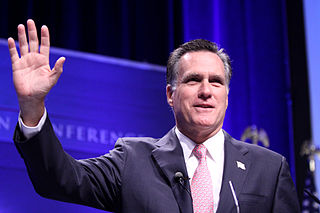Tag: Mitt Romney Page 4 of 11
This commentary also appears at the Huffington Post.
Will Republican Sen. Scott Brown of Massachusetts win re-election this November? Or will he be defeated by his Democratic rival, Elizabeth Warren? The answer, clearly, is “yes.”
I’ve been thinking about writing this post for a while. Frank Phillips’ story in today’s Boston Globe on Democrats who are panicking over the latest polls seems like as good a hook as any, so here we go.
From the moment Warren announced her candidacy, I’ve been struck by the fever-pitch feel that has permeated the race. Not among ordinary voters, of course; they won’t tune in until after Labor Day. But political junkies are fully engaged, as you know if you dip into the Twitter streams at #masen and #mapoli.
It seems to me that we’ve got a race between two very good candidates. I think Warren is the best the Democrats could have hoped for — not just better than the unknowns and wannabes who were running before she got into the race, but better than any member of the state’s Democratic establishment, with the possible exception of Gov. Deval Patrick.
Warren is articulate, she’s an economic populist, she combines insider experience with outsider credentials (how many people have managed to piss off both Republicans and Treasury Secretary Timothy Geithner?) and she’s almost as pretty as Brown.

Elizabeth Warren
Nor has she made any major missteps to this point. Brown supporters have tried to make hay of her endorsement of the Occupy movement, but that’s not going to play. The repeated references to her as “Professor” Warren are kind of pathetic. Anti-intellectualism does not have the sort of appeal in Massachusetts that it does in, say, Texas.
But some Democrats seem surprised, at the very least, that Brown didn’t topple like a rotten tree at the first sign that he’d have a serious opponent. Those sentiments vastly underestimate Brown’s strengths. In fact, I can think of two only first-class political talents to emerge in Massachusetts in the post-Michael Dukakis era: Patrick and Brown. (If Mitt Romney didn’t have a zillion dollars, I’m not sure he could win a seat on the Belmont Board of Selectmen.)
Democrats ignore the reality that no one is really angry at Brown other than liberal activists. He was elected just a little more than two years ago, and the glow from his startling victory over state Attorney General Martha Coakley has not fully faded. Massachusetts voters have traditionally liked having a Republican in a statewide position, and with the governor’s office now in Democratic hands, Brown has that working for him as well. My sense is that a lot of voters are still rather pleased with themselves for their role in Brown’s win, and it’s going to take more than Warren’s just showing up to get them to change their minds.
Nor should anyone discount Brown’s political instincts, which are superb. Brown has been a master of not taking strong stands on divisive issues, leaving himself free to bend when it’s necessary for his survival as a Republican in an overwhelmingly Democratic state. It took a while, but he eventually came around to voting for the repeal of “don’t ask, don’t tell.” He was among the very few Republicans who voted in favor of financial regulation, although he also loses points for his role in weakening those regulations.
The outlier in Brown’s record is his staunch support for the Blunt amendment, which would undo President Obama’s compromise on birth-control coverage at colleges, hospitals and other secular employers owned by religious institutions. Although Brown’s stand doesn’t seem to have hurt him in the polls so far, I think those who argue his rising poll numbers reflect public support for Blunt are wrong. Again, people just aren’t paying attention yet.
Why did Brown do it? Who knows? Maybe he’s acting on principle. Maybe the Senate leadership believes it has let Brown stray from the reservation too often and demanded his fealty on this one. In the long run, Brown’s support for Blunt will probably hurt him at the margins, but it’s not likely to determine the outcome of the race.
So what will determine the outcome? My guess is turnout. If this weren’t a presidential-election year, Brown would probably be a shoo-in for re-election. But with Obama on the ballot, a lot of people in Massachusetts are going to come out on Election Day looking to vote a straight Democratic ticket. The likelihood that Romney will be Obama’s Republican opponent only makes matters worse for Brown. Romney is not popular here except among the state’s tiny band of Republicans.
Predictions are futile. But I would imagine that whoever wins, it’s going to be extremely close. My advice: Don’t sell Brown short. And chill out. It’s only March.
Photo of Scott Brown by Dan Kennedy. Photo of Elizabeth Warren by the U.S. Treasury Department via Wikimedia Commons.
My latest for the Huffington Post:
Is it over?
A better way of putting it: Do the media want it to be over?
The Florida Republican primary ended last night with dual scenes reminiscent of campaigns past. The winner, hoping to consolidate his gains and close out a divisive intraparty battle, devoted most of his attention to his general-election rival. His nearest competitor vowed to fight on until the convention.
But the incompatible desires of Mitt Romney and Newt Gingrich do not matter nearly as much today as how the media will now frame the narrative.
Read the whole thing here.
Three quick observations about the state of the Republican presidential campaign:
• It’s been a very bad week for Mitt Romney. First came his peevish debate performance Monday night. Then came his admission that his tax rate is half that of ordinary Americans, followed by the revelation that he parks a great deal of his wealth in the Cayman Islands.
But one thing the media are unlikely to back down on is their insistence that he’s “two for two” going into Saturday’s South Carolina primary, even though we’ve known since Jan. 6 that Rick Santorum may have beaten him in the Iowa caucuses.
Now the Des Moines Register reports that the best numbers we’re ever going to get show Santorum ahead of Romney by 34 votes. Apparently the votes from eight precincts have been lost, so we’ll never know exactly who won.
Still, the media’s insistence that Romney had “won” Iowa by eight votes was never based on anything more than a provisional count that crumbled within hours. If it was all right to report that Romney won Iowa then, it’s certainly all right to say Santorum won Iowa now.
Does it matter? No. But it was the media that told us relentlessly and breathlessly for many months that it did matter. So surely it matters that Romney apparently came in a narrow second, eh?
• Will Fox News allow Sarah Palin to take part in its post-debate spin tonight now that she has essentially endorsed Newt Gingrich for president? Tune in and see.
• I thought it was crystal-clear that Gingrich was being racially provocative when he got into his food-stamp exchange with Juan Williams on Monday night, and I’m amazed by those who refuse to see it that way. So I was delighted to see this report from the road in today’s New York Times, which ends:
“I want to thank you, Mr. Speaker, for putting Mr. Juan Williams in his place,’’ she said.
The audience burst into sustained applause.
Any questions? And don’t miss Charles Pierce: “What Newt Gingrich is doing down here is running a campaign that is pure George Corley Wallace, straight out of 1968 and 1972.”

John Sununu
Boston Globe editorial-page editor Peter Canellos and I recently exchanged some emails over Globe op-ed columnist John Sununu’s lobbying work on behalf of Akin Gump. I ended up choosing not to write about Sununu because I was satisfied that Sununu’s non-disclosure in his columns, though potentially problematic, did not rise to the level of unethical behavior. It was also clear that I’d need to do a lot more research than I had time for in order to put some flesh on the bones.
Today Media Matters, a prominent liberal media-watch organization, weighs in. And I don’t regret my decision. Oliver Willis and Joe Strupp have really done their homework, only to find that the whole situation is fairly ambiguous. It looks like they got excited about the chance to write that the former New Hampshire senator was using the Globe to further his interests in such controversial practices as hydrofracking only to find that Sununu’s ties to Akin Gump are rather tangential.
One thing Willis and Strupp don’t mention is that Sununu has used his column to carry water for Mitt Romney on several occasions, including the run-up to the New Hampshire primary. This one, for instance, couldn’t be any more favorable if one of Romney’s kids had written it. Sununu did not endorse anyone, but his column dutifully noted that his father, former New Hampshire governor John Sununu, had endorsed Romney.
There is a larger question here. Why do news organizations use political partisans and lobbyists — and people who are both — to write opinion pieces for them? That, to me, is the real issue. I find nothing in Sununu’s columns that are insightful or fresh enough to make me think he earned a piece of the valuable real estate he commands. He’s there because of who he is, not because of what he has to say.
I don’t mind strong opinions. Frankly, I’d like to see more of them in the Globe. But if I want those opinions from a politician-turned-lobbyist, I can always turn on cable TV.





